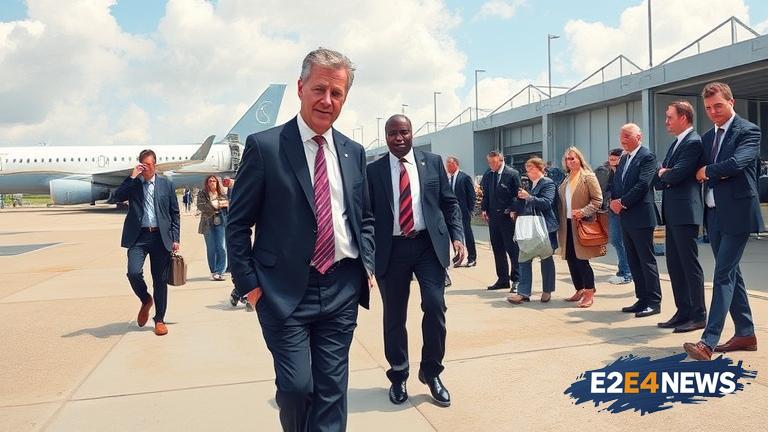Nigel Farage, the former leader of the UK Independence Party (UKIP), has sparked a heated debate after announcing his deportation plans at Oxford Airport. The announcement was met with a mixture of reactions, ranging from support to outrage, from locals and politicians alike. Farage, known for his strong stance on immigration, has been a vocal advocate for stricter border controls and deportation policies. His plans, which aim to deport individuals who have entered the country illegally, have been criticized by some as inhumane and unrealistic. Others, however, have expressed support for the plans, citing concerns about national security and the need to maintain control over the country’s borders. The announcement was made at Oxford Airport, which has been identified as a key location for deportation flights. The airport has been used in the past for deportation flights, and it is expected that it will continue to play a role in the government’s deportation efforts. The plans have been met with resistance from local residents, who have expressed concerns about the impact of deportation on families and communities. Some have also raised questions about the legality and morality of the plans, citing concerns about human rights and the treatment of asylum seekers. Despite the controversy, Farage remains committed to his plans, which he believes are necessary to maintain the integrity of the country’s borders. The debate surrounding the deportation plans has highlighted the complex and often divisive nature of immigration policy, with different perspectives and opinions on the issue. The government has faced criticism for its handling of immigration, with some arguing that the current system is too lenient and others arguing that it is too harsh. The issue has also been influenced by the ongoing Brexit negotiations, which have raised questions about the future of immigration policy in the UK. As the debate continues, it remains to be seen how the government will proceed with its deportation plans and how they will be received by the public. The announcement has also sparked a wider discussion about the role of airports in deportation efforts, with some arguing that they should not be used for this purpose. Others have argued that airports are a necessary part of the deportation process, and that they provide a safe and efficient way to transport individuals who are being deported. The controversy surrounding the deportation plans has also highlighted the need for a more nuanced and informed discussion about immigration policy, one that takes into account the complex realities of the issue. It has also raised questions about the impact of deportation on local communities, and the need for greater support and resources for those who are affected by it. Furthermore, the plans have sparked a debate about the role of political leaders in shaping public opinion on immigration, and the need for more responsible and informed leadership on the issue. In addition, the announcement has highlighted the importance of considering the human impact of deportation policies, and the need for a more compassionate and humane approach to immigration. The plans have also raised questions about the effectiveness of deportation as a means of controlling immigration, and the need for more effective and sustainable solutions to the issue. Ultimately, the debate surrounding the deportation plans has highlighted the need for a more informed and nuanced discussion about immigration policy, one that takes into account the complex realities of the issue and the need for a more compassionate and humane approach.
